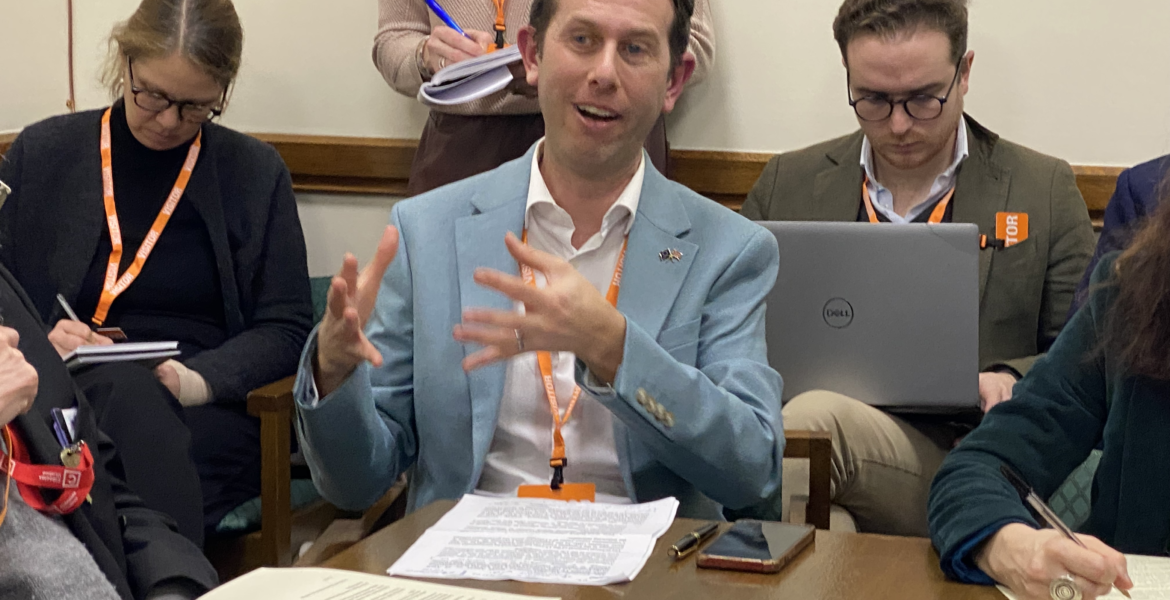A survey has uncovered alleged shortcomings in the UK’s voting system.
Britons who live overseas were surveyed about their experience in receiving voting ballots in order to participate in last year’s UK general election.
The aim was to see how well, or otherwise, the postal vote system performed for Britons living and working abroad.
The last general election was the first in which all adult UK citizens abroad could vote in Westminster elections, following the abolition of the so-called 15-year-rule.
The results reveal that about half of those surveyed did not receive their ballots in time for there to be a reasonable chance of returning it in time for their votes to be counted.
Campaigners claim the results, just published, should not come as too much of a surprise given that the Electoral Commission had been flagging huge problems with the postal vote system for overseas voters since 2015 or even earlier.
Only 190,000 UK citizens abroad were registered to vote at the last general election out of 3.5 million people estimated to be living or working abroad.
This compares with France where there were 1.7 million people registered to vote in their national elections out of 2.5 million French people living abroad.
This means, it is claimed, that just five percent of UK citizens abroad were registered to vote compared to 68 percent for French citizens abroad.
Campaign groups go on to claim that the big problem with the postal vote in the UK is that by the time a candidate has been selected and their name has been printed on a ballot paper, there is typically only about four weeks left until the date of the election.
Together with “Unlock Democracy,” another campaign group, “New Europeans UK,” have submitted evidence to an ongoing UK government inquiry, looking at the resilience of the UK electoral system.
The Public Administration and Constitutional Affairs Committee (PACAC) will review the administration, process and conduct of the 2024 general election, and how these could be improved for future elections, according to the UK government’s website.
Chair of New Europeans UK, Dr Ruvi Ziegler, worked with the Director of Unlock Democracy, Tom Brake, to gather the evidence for (PACAC), which was appointed by the House of Commons to examine constitutional issues.
New Europeans UK and Unlock Democracy collaborated with the British Overseas Voters Forum to carry out the voting survey during last summer’s election, which saw a return to power for the Labour Party under Sir Keir Starmer.
The results of the survey come after the UK government last week (February 12) published its response to the Electoral Commission’s own inquiry into the 2024 general election.
New Europeans UK and Unlock Democracy said they found the response to that inquiry from the UK disappointing.
Brake told this site: “Sadly, for overseas voters dependent on snail-like postal systems, all that is promised is further inaction. Nothing in the government’s response suggests that overseas voters will ever be certain that their vote will arrive in time to be counted.”
“But we do need to find a solution, because when as many people as that are not registering to vote, and if they are registering and voting, are finding that their votes do not actually get counted, then that is a major failing in our democratic system. And given overseas voters have been given the right to vote, the government should do what it takes to ensure they are able to exercise that right.”
Dr Ziegler added, “The UK government response to the Electoral Commission inquiry is disappointing.
“The notion of voting at overseas consultancies and embassies is dismissed based on the complication of having to deal with ballot papers from 650 constituencies.”
“The answer to this is of course that we need overseas constituencies to simplify the process. There is no response at all either to the possibility of downloading and printing ballot papers.”
In its response to the Electoral Commission’s probe into last year’s election, the UK Government says it “recognises the Commission’s findings with regards the difficulties faced by British citizens living overseas when trying to participate in UK elections.”
“These difficulties are longstanding and have been noted in previous reports by the Commission. Overseas electors are legitimate voters who should be able to exercise their vote without unnecessary barriers, and we will consider options to support voting by overseas electors in general.”
The review, it says, is focusing on examining issues and proposing solutions that could be viable more immediately.
The Government said, “We have considered whether UK citizens living abroad could vote in UK elections at local consular and embassy buildings and there is a concern that this approach would result in significant logistical and administrative burdens that could compromise the efficiency and expediency of elections.”
“We have also noted the Commission’s suggestion to introduce telephone-based assisted voting for overseas electors. This would be a significant change to voting at UK elections and would raise a number of technical and logistical issues.”
“Outcomes from the consideration of the Commission’s other recommendations on overseas voters, as outlined above, will be shared as part of the government’s Strategy for Elections.”




